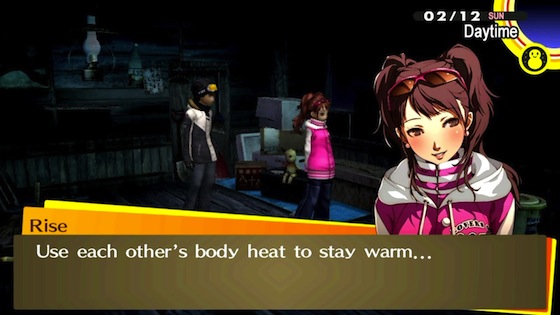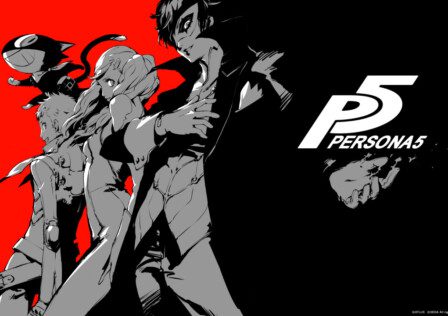- Release Date
- 9 December, 2008
- Platforms
- PlayStation 2
- Genre
- Roleplaying
- Modes
- Single Player
- Developer
- Atlus
- Publisher
- Atlus
It’s almost undeniable that the Playstation 2 had one of the most impressive libraries of games across all the generations of gaming consoles, with so many stand-out titles. One that has always and will always stand out to me has to be Shin Megami Tensei: Persona 4. On paper, the game probably doesn’t sound too appealing; it’s part visual novel, part dungeon crawler, with over 100 hours of gameplay. However, this bland-sounding formula hides something incredible.
It all starts when the main character goes to live with his uncle for a year. While he expects a normal high school life to be awaiting him, what he is dragged into is far from normal. It all involves a series of gruesome murders, which all happen whenever the sleepy town of Inaba is covered in a dense fog. On top of all of that, the main character finds out he somehow has the ability to pass through television screens and into a strange, monster filled world that could be linked to the murders somehow. It’s in that world where the hero of the game learns to summon his first Persona.
The titular Persona are basically monsters the characters must summon in order to perform magic and other special attacks. As you move through the dungeons, you collect them in the form of tarot cards, which you can then fuse together in order to make more powerful Persona. As you battle, your Persona also gain experience, learning new skills and spells as they do. This gets really interesting and means that you develop your own style of play, with a team of Persona you can depend on.

In Persona 4 there’s plenty to do with your time, so much so that you could easily manage to go through a different event on each in-game day. While your character’s daytime is usually filled up with lessons and exams at school, in the evening you can socialise with your school friends and other members of the town, work a part-time job, complete a large amount of side quests, and, of course, go into the strange world behind the television screen.
What Persona 4 excels in the most is the characters that populate the main character’s everyday life. From the old man that patrols the streets to your party members, every single one is made earnest and believable. That’s a very good thing since interacting with the characters is a major part of the game. The more time you spend with your party members, the stronger they become.
The characters are most definitely helped to be brought to life by the fantastic voice acting that Atlus USA captured for the Western localisation of the game. It really is a shining example of how localisation should be done, and manages to avoid the “Saturday Morning Cartoon” feeling that you get from the American dubbing in a lot of Japanese anime.

In addition to all of this, the game has a fantastic soundtrack, which does a great job of setting the mood of the title. Shoji Meguro did a stellar job with it and I’ll openly admit that for weeks after playing Persona 4, I walked around listening to it on a near-daily basis; perhaps partially from the melancholy left behind after having to leave Inaba myself whenever I wasn’t playing the game.
If there’s anything negative that I can really say about this game, it’s that the procedurally generated dungeons can often feel a bit repetitive, and new types of enemies seem rarer and rarer as you get further in. The repetitive nature of the dungeons rarely ever gets to the point of being boring, though, because it’s almost perfectly balanced with the social interaction aspect of the game.
If you haven’t yet played this game, then I almost insist that you give it a chance; you definitely won’t regret it. It’s already managed to craft out a legacy in the form of its spin-offs that so far have delved into the genres of fighting and rhythm action games, with the Persona 4 Arena series and the upcoming Persona 4: Dancing All Night. It even got a fantastic re-release on the Playstation Vita, Persona 4: Golden, which adds in even more content and makes the game much easier to play if you’re new to the series. If I was to recommend any version, it would be that one.
At heart a murder mystery with a pinch of horror thrown in, Persona 4 is an amazing RPG that will make you laugh, cry and scream in anger if you just give it a chance.


